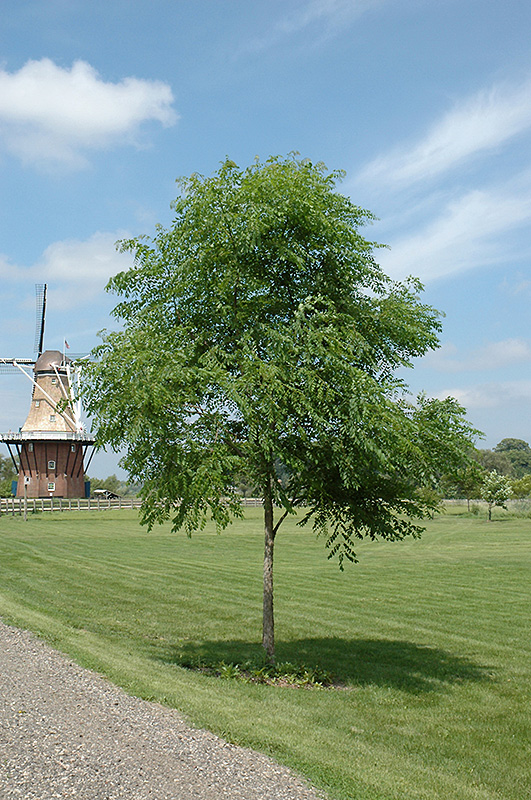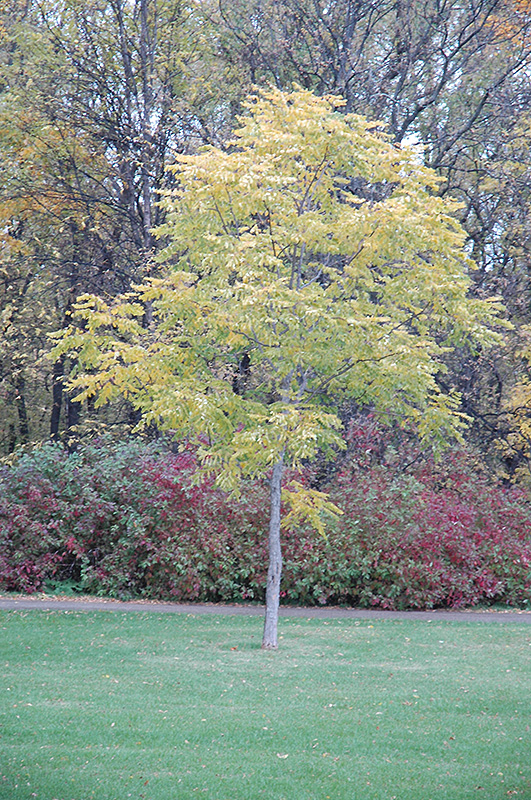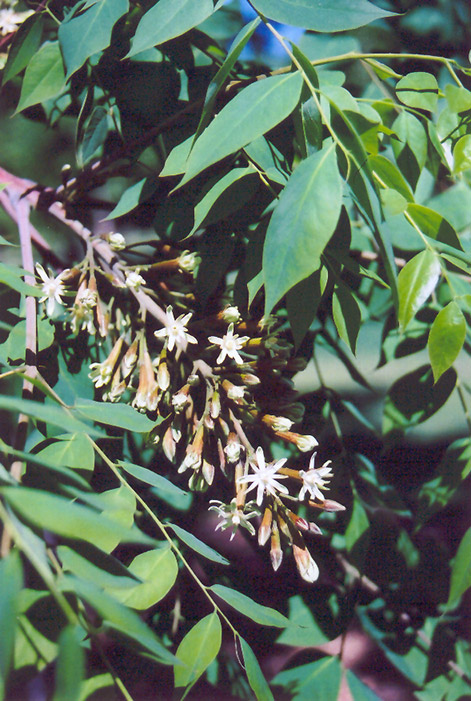PLANT FINDER
Height: 70 feet
Spread: 45 feet
Sunlight:
![]()
Hardiness Zone: 3b
Description:
A stately large shade tree with massive yet delicate multiply compound leaves; rather coarse outline when young and in winter, but very attractive when in leaf; tolerant of adverse growing conditions; large seed pods can be messy; for larger landscapes
Ornamental Features
Kentucky Coffeetree features subtle panicles of lightly-scented white pea-like flowers hanging below the branches in late spring. It has forest green deciduous foliage. The large bipinnately compound leaves do not develop any appreciable fall color. However, the fruit can be messy in the landscape and may require occasional clean-up. The rough dark brown bark adds an interesting dimension to the landscape.
Landscape Attributes
Kentucky Coffeetree is a deciduous tree with an upright spreading habit of growth. Its strikingly bold and coarse texture can be very effective in a balanced landscape composition.
This is a high maintenance tree that will require regular care and upkeep, and is best pruned in late winter once the threat of extreme cold has passed. Gardeners should be aware of the following characteristic(s) that may warrant special consideration;
- Messy
Kentucky Coffeetree is recommended for the following landscape applications;
- Shade
Planting & Growing
Kentucky Coffeetree will grow to be about 70 feet tall at maturity, with a spread of 45 feet. It has a high canopy with a typical clearance of 7 feet from the ground, and should not be planted underneath power lines. As it matures, the lower branches of this tree can be strategically removed to create a high enough canopy to support unobstructed human traffic underneath. It grows at a slow rate, and under ideal conditions can be expected to live for 90 years or more.
This tree should only be grown in full sunlight. It is very adaptable to both dry and moist locations, and should do just fine under average home landscape conditions. It is considered to be drought-tolerant, and thus makes an ideal choice for xeriscaping or the moisture-conserving landscape. It is not particular as to soil type or pH. It is somewhat tolerant of urban pollution. This species is native to parts of North America.




